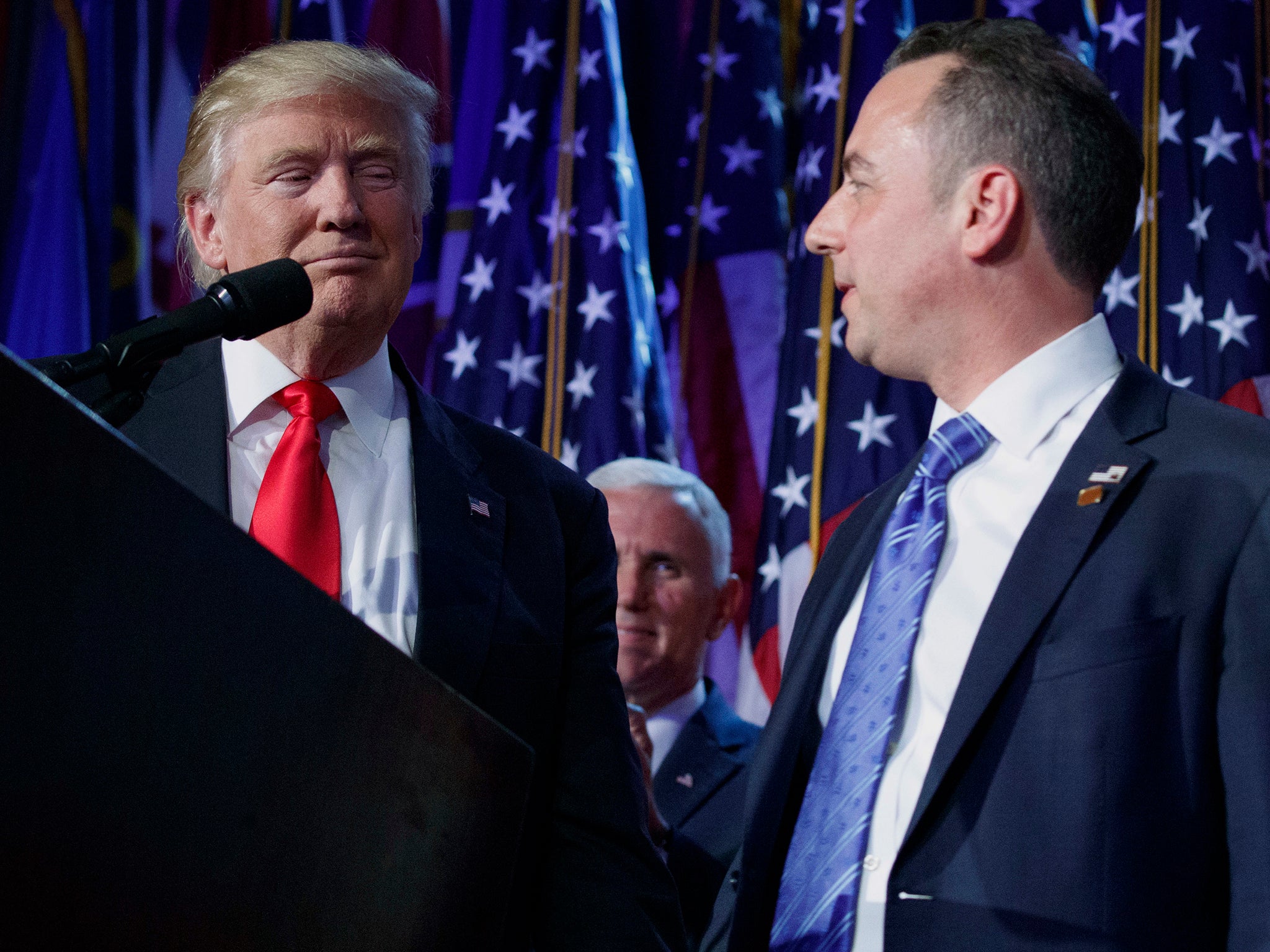Trump's White House will be split into two factions - this is bad news for American foreign policy
His first appointments – of Republican operative Reince Priebus as Chief of Staff and far-right Steve Bannon as Senior Counsellor – suggests that he will try to balance the old Republican Party and his own insurgents. This will make crisis foreign policy decision making very tricky

One of those issues where Donald Trump’s presidential campaign diverged most strikingly from the norm was on the value of US alliances. In Europe, where US involvement has been a cornerstone of strategic and political strategy since the end of WWII, Trump’s election coincides with the rise of populist movements, reinforcing a sense that the existing security order is liable to change. But while the ascendant European populists have praised Trump fulsomely, the honeymoon may not last.
Part of this comes down to the difference between the US political system and its European counterparts. In Europe, Donald Trump would likely have run on the platform of a populist party, not an established centre-right one. The strength of the two-party system in the US meant that his only credible path to the presidency was through one of the major parties. In the event, that proved to be a successful strategy, but it means that he will need to work with the existing structures of the Republican Party to govern, rather than bringing in his own staff wholesale. His first appointments – of Republican operative Reince Priebus as Chief of Staff and far-right figure Steve Bannon as Senior Counsellor suggests that he will try to find some way of balancing between these two constituencies – or playing them off each other – rather than deferring entirely to one side or the other.
As of yet, we do not know which direction Trump will take in his top-level Cabinet picks. For the major foreign policy posts – principally State and Defense – he might defer to the traditional Republican establishment and pick someone like Senate Foreign Relations Chairman Bob Corker. Or he might pick someone more closely linked to his insurgent campaign, like former House Speaker Newt Gingrich. The Bannon/Priebus split, and his business career, suggests that he may split the difference and create competing power centres within his administration, some occupied by establishment figures and some by insurgents. The overall direction of his administration will be determined by which faction succeeds in gaining more traction with the occupant of the Oval Office – which might happen quickly, slowly, or possibly even never.
This uncertainty will have real policy impacts for Europe. On Russia, for example, the traditional Republican foreign policy establishment is intensely hawkish, whereas Trump’s base is somewhere between agnostic and actively supportive. That internal battle will complicate Trump’s relationship with European counterparts: as Russia becomes bolder in its support of nationalists elsewhere, as it surely will, stark divisions of national interest will emerge. For France’s far-right, Russia is a helpful ally; for Poland’s, it is a hated enemy. And while nationalist parties might agree on broad issue areas – multiculturalism, immigration, trade – they are by nature resistant to international collaboration. If Trump’s rise makes further victories by nationalistic parties more likely, the power struggle within his administration will immeasurably complicate collaboration on many of the biggest challenges they face.
It also makes it more difficult for adversaries to judge where Trump’s aversion to foreign entanglements ends and his extreme hawkishness begins. If a conventional Republican Secretary of State urges confrontation with Russia and a Trumpist National Security Advisor urges restraint, the US government may not be able to effectively or accurately signal its intentions until the President makes a decision. But in a fast-moving world, delays and miscommunications can be the difference between a crisis spiralling and a crisis averted.
And here is where the “populist” tinge of Trump’s rise runs into a hard reality – a reality already being confronted by the British government as it navigates the complexities of turning the EU referendum into reality, and by other populist and insurgent movements which have succeeded in turning electoral appeal into real power. Politics is complex because the world is complex. And Trump’s simplistic sloganism will run into that reality – there are no simple solutions.
Dr Jacob Parakilas – Assistant head of the US and the Americas programme at Chatham House.
Join our commenting forum
Join thought-provoking conversations, follow other Independent readers and see their replies
Comments
Bookmark popover
Removed from bookmarks